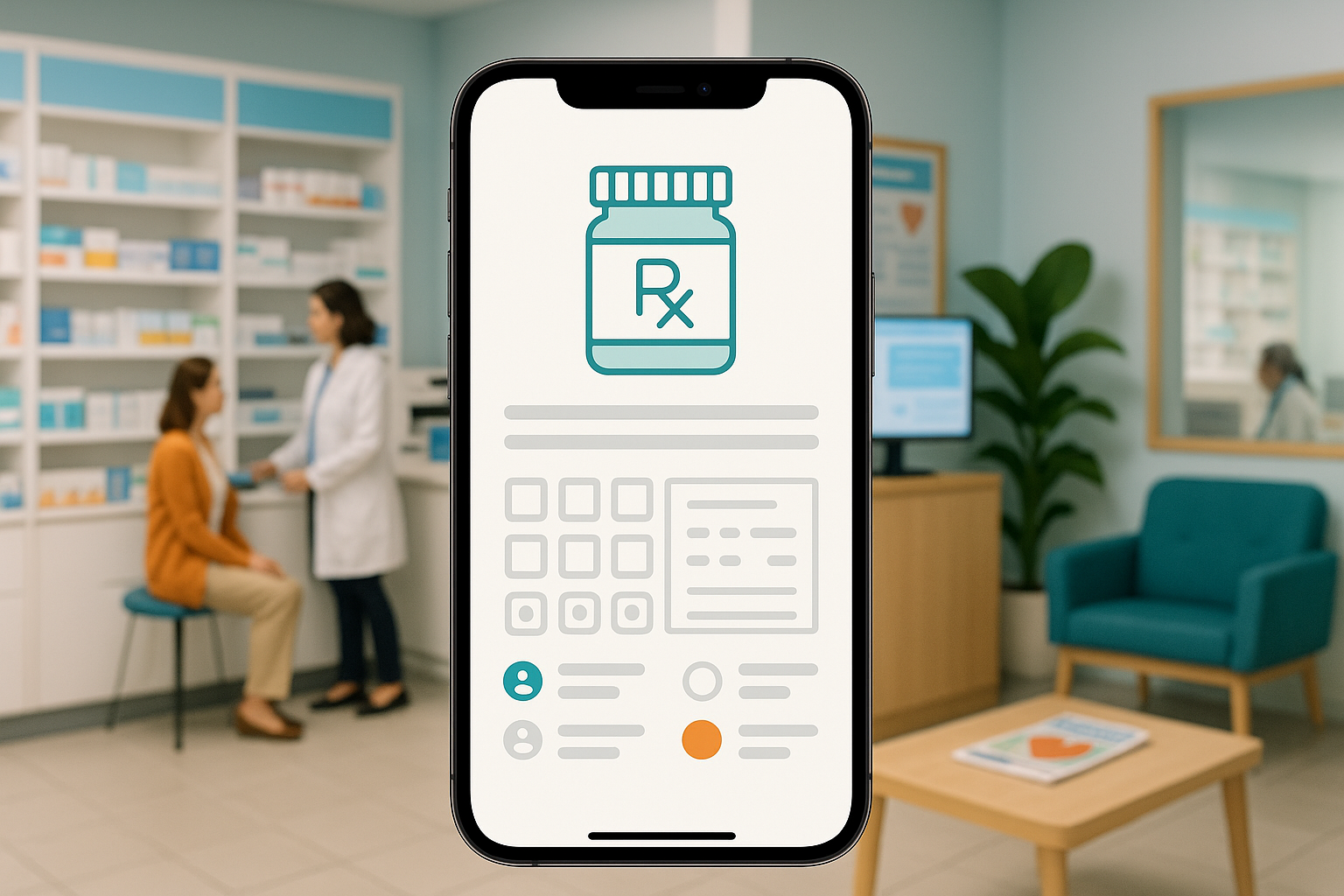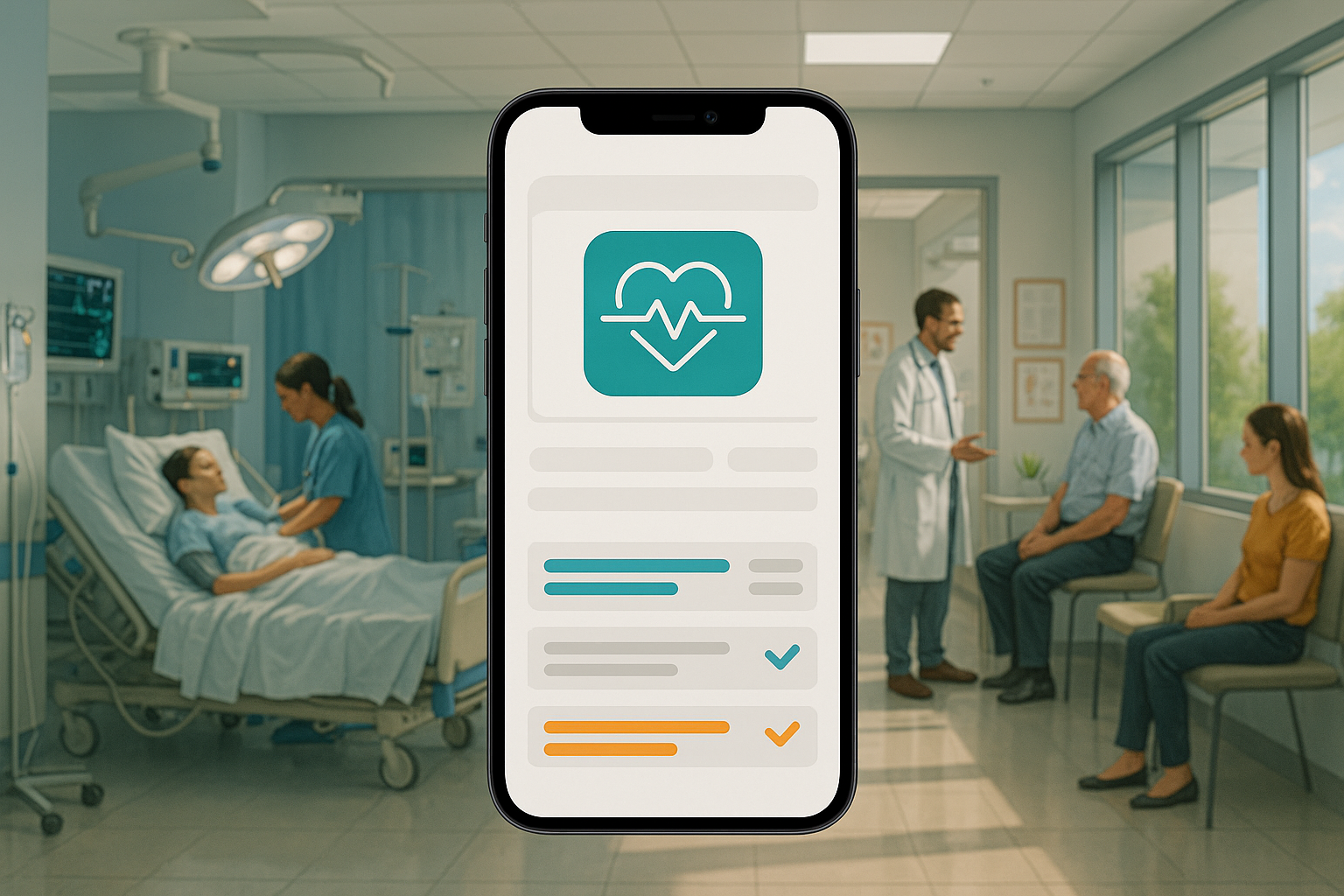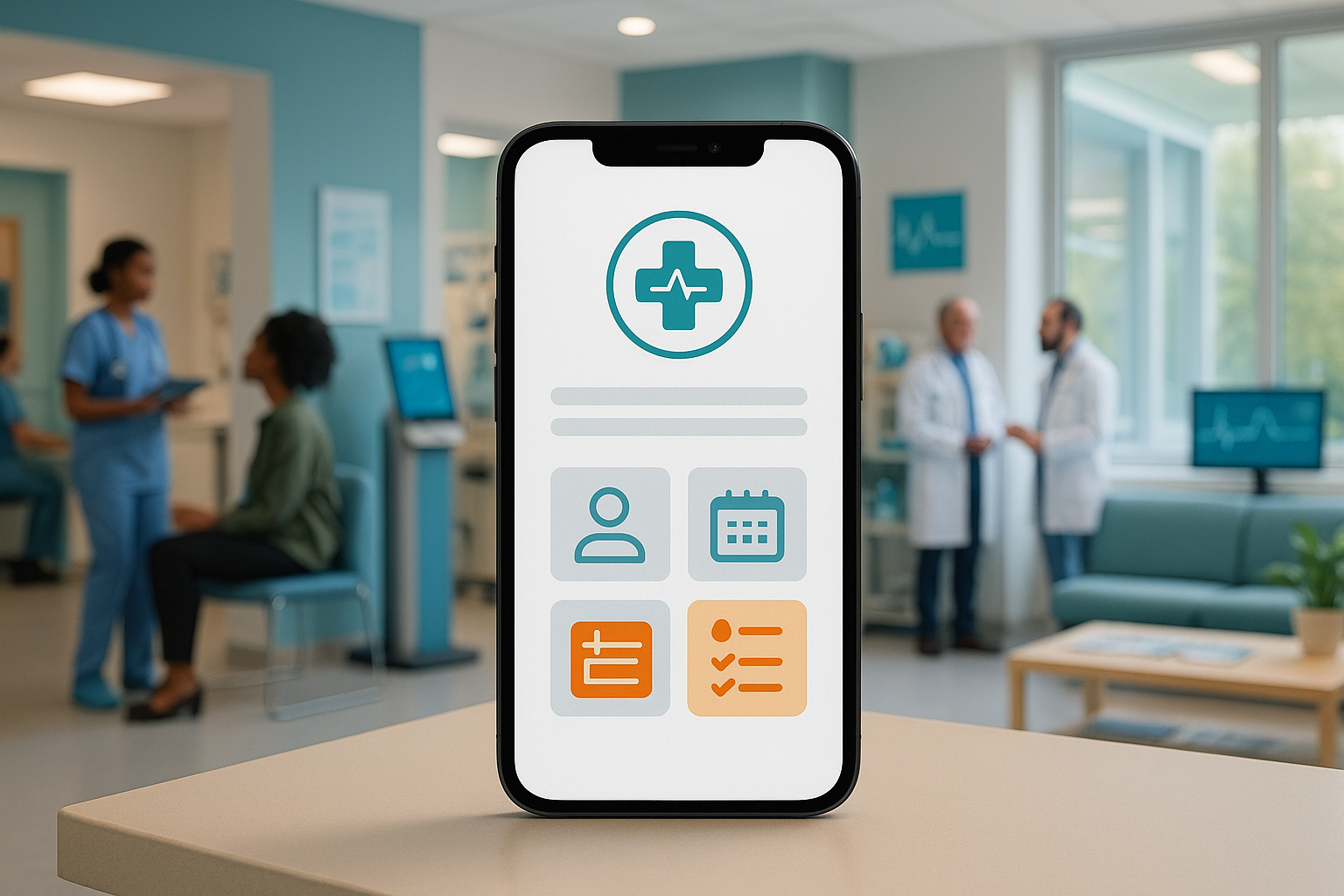Introduction
In an era defined by digital convenience, the healthcare industry is undergoing a profound transformation. Patients now expect the same seamless, on-demand service from their pharmacies that they receive from retail or food delivery services. This shift has made custom Medicine Ordering applications not just a competitive advantage, but a fundamental necessity for pharmacies, healthcare startups, and established medical institutions. However, building such an application is a formidable task, fraught with challenges ranging from stringent regulatory compliance to complex technical integrations and the paramount need for data security.
Attempting to navigate this intricate landscape with an in-house team can quickly deplete resources, invite legal risks, and result in a product that fails to meet user expectations. The stakes are simply too high to leave to chance. This article serves as a comprehensive guide to understanding the world of custom Medicine Ordering app development. We will explore what these applications entail, dissect the reasons why in-house development is so difficult, and articulate the compelling case for a custom-built solution. Furthermore, we will provide a realistic cost estimate and a curated list of top development companies that can bring your vision to life.
As a top US AI-powered app development firm with over two decades of experience, we at MetaCTO have launched over 100 successful applications, helping our clients navigate complex industries and achieve market leadership. We understand that building a Medicine Ordering app requires more than just code; it demands deep industry knowledge, a meticulous approach to security, and a relentless focus on the user. We specialize in turning complex ideas into market-ready products, and this guide will show you how to do it right.
What is a Medicine Ordering App?
At its core, a Medicine Ordering app is a digital platform that allows users to purchase prescription and over-the-counter (OTC) medications from licensed pharmacies for delivery. However, this simple definition belies the application’s true complexity. Unlike a standard e-commerce platform, a Medicine Ordering app operates within the highly regulated healthcare ecosystem, handling sensitive personal and medical data that must be protected at all costs.
A well-designed Medicine Ordering app serves as a multifaceted bridge connecting several key stakeholders:
- Patients (Users): The primary users who need a simple, secure, and reliable way to manage their medications. They require features for uploading prescriptions, browsing products, managing refills, and tracking orders.
- Pharmacies: The licensed entities that dispense the medications. The app must integrate with their existing Pharmacy Management Systems (PMS) to manage inventory, process orders, and verify prescriptions.
- Doctors and Prescribers: Healthcare professionals who issue prescriptions. The platform may need features to verify prescriber credentials or even integrate with Electronic Health Record (EHR) systems for a seamless prescription-to-fulfillment workflow.
- Delivery and Logistics Providers: The services responsible for the timely and secure delivery of medications to the patient’s doorstep.
The core functionalities of a comprehensive Medicine Ordering app typically include:
- Secure User Onboarding and Profiles: Users must be able to create secure accounts, often requiring identity verification to comply with regulations. Profiles store delivery addresses, payment information, and prescription history.
- Prescription Management: A critical feature allowing users to upload photos of their physical prescriptions or for doctors to send e-prescriptions directly. The system must include a robust verification workflow for pharmacists.
- OTC Product Catalog: An intuitive, searchable catalog of over-the-counter medications and health products, complete with detailed descriptions, dosage information, and pricing.
- Secure Payment Gateway: Integration with PCI DSS-compliant payment processors to handle transactions securely, including support for insurance co-pays.
- Order Tracking and Notifications: Real-time updates on the status of an order, from prescription verification to dispensing and final delivery.
- Refill Reminders: Automated notifications to remind users when it’s time to refill a recurring prescription, improving medication adherence and customer retention.
- Pharmacist Consultation: Secure in-app chat or video call functionality that allows users to consult with a licensed pharmacist about their medications, ensuring patient safety and building trust.
Ultimately, a Medicine Ordering app is not merely a digital storefront; it is a critical piece of healthcare infrastructure that demands precision, security, and a deep understanding of its users’ needs and the regulatory environment.
Reasons It Is Difficult to Develop a Medicine Ordering App In-House
While the allure of maintaining full control over a project can make in-house development seem attractive, the unique complexities of a Medicine Ordering app present a series of formidable obstacles that most internal teams are ill-equipped to handle. These challenges span legal, technical, and operational domains, and underestimating them can lead to project failure, budget overruns, and severe legal repercussions.
1. Navigating the Maze of Regulatory Compliance
This is arguably the single greatest challenge. Healthcare is one of the most heavily regulated industries in the world, and any application handling patient data must adhere to a strict set of laws. In the United States, the Health Insurance Insurance Portability and Accountability Act (HIPAA) is paramount. HIPAA dictates exacting standards for the privacy and security of Protected Health Information (PHI), which includes everything from a patient’s name and address to their prescriptions and medical history.
Violating HIPAA is not a trivial matter; it can result in crippling fines, legal action, and irreparable damage to a company’s reputation. Achieving and maintaining HIPAA compliance requires:
- Deep Legal and Technical Expertise: Understanding the nuances of the HIPAA Privacy Rule, Security Rule, and Breach Notification Rule is a full-time job. It requires legal counsel specialized in healthcare technology and engineers who know how to implement technical safeguards like access controls, audit logs, and encryption protocols correctly.
- Secure Infrastructure: The app’s entire infrastructure, from servers to databases, must be configured in a HIPAA-compliant manner. This often involves partnering with specialized hosting providers and implementing robust security measures.
- Ongoing Audits and Risk Assessments: Compliance is not a one-time setup. It requires continuous monitoring, regular security audits, and formal risk assessments to identify and mitigate potential vulnerabilities.
Most in-house development teams lack this specialized, cross-disciplinary expertise, making compliance a significant and often insurmountable hurdle.
2. The Labyrinth of Third-Party Integrations
A Medicine Ordering app cannot exist in a vacuum. To be functional, it must seamlessly connect with a variety of external systems, each with its own API, data format, and security protocols. Key integrations include:
- Pharmacy Management Systems (PMS): The backbone of a pharmacy’s operations, the PMS manages inventory, pricing, and prescription data. Integrating with these often legacy systems can be technically challenging and requires close collaboration with the pharmacy.
- Electronic Health Record (EHR) Systems: For a truly streamlined workflow, integrating with EHRs allows doctors to send e-prescriptions directly to the app, reducing errors and saving time. However, the EHR market is fragmented, with hundreds of different systems, making universal integration a monumental task.
- Payment Gateways: Standard payment processors are not enough. The app needs gateways that are PCI DSS compliant and can handle complex transactions involving insurance co-pays and deductibles.
- Prescriber and Insurance Databases: The app needs to verify the credentials of prescribers and check a patient’s insurance eligibility and coverage in real-time. This requires integrating with secure, third-party databases.
- Logistics and Delivery APIs: To provide real-time order tracking, the app must integrate with the APIs of its delivery partners.
Managing these complex, multi-vendor integrations requires a seasoned development team with strong API integration experience and project management skills.
3. Fortifying the Application with Uncompromising Security
Beyond regulatory compliance, the moral and business imperative to protect sensitive patient data demands an obsessive focus on security. A data breach involving medical information is catastrophic. An in-house team must have expertise in:
- End-to-End Encryption: All data, whether in transit between the app and the server or at rest in the database, must be encrypted using industry-standard algorithms.
- Secure Authentication: Implementing multi-factor authentication (MFA) is essential to prevent unauthorized account access.
- Secure Coding Practices: Developers must follow best practices (such as those outlined by OWASP) to prevent common vulnerabilities like SQL injection, cross-site scripting, and insecure direct object references.
- Penetration Testing and Vulnerability Scanning: The application must undergo rigorous, regular testing by security professionals to proactively identify and patch weaknesses.
This level of security engineering is a specialized discipline that is often beyond the capabilities of generalist in-house developers.
4. The Scarcity of Specialized Talent and Resources
Building a team with the requisite skills to tackle all these challenges is both difficult and expensive. You need more than just good developers; you need product managers who understand healthcare workflows, UX/UI designers who can create accessible and trustworthy interfaces for a diverse user base (including the elderly), QA engineers who know how to test for HIPAA compliance, and DevOps engineers who can build and maintain a secure infrastructure. Finding, hiring, and retaining this specialized talent is a major challenge for any organization, let alone one whose core competency is not software development.
Why Custom App Development for Medicine Ordering?
Given the inherent difficulties, the path of custom development, guided by an expert agency, emerges as the most strategic and secure approach. While off-the-shelf solutions might seem like a shortcut, they often introduce compromises in functionality, scalability, and security that are unacceptable in the healthcare space. A custom-built application provides a suite of indispensable advantages.
Tailored Functionality and User Experience
Every pharmacy and healthcare provider has unique workflows and a specific target audience. A custom application can be meticulously designed to match these exact needs.
- Optimized Workflows: You can design the prescription verification and fulfillment process to mirror and improve upon your pharmacy’s existing operations, rather than forcing your staff to adapt to a rigid, one-size-fits-all system.
- Brand Identity: A custom app allows you to create a user interface that reflects your brand’s identity, building trust and loyalty with your patients.
- User-Centric Design: You have the freedom to conduct in-depth user research and design an experience that is intuitive and accessible for your specific patient demographic, whether they are tech-savvy millennials or elderly patients who may require larger fonts and simpler navigation.
Uncompromising Security and Compliance
With custom development, security and compliance are not afterthoughts; they are foundational principles woven into the fabric of the application from day one.
- Purpose-Built Security Architecture: You can work with your development partner to design a security architecture tailored to the specific data you handle and the regulations you must follow. Every line of code and every infrastructure decision can be made with compliance in mind.
- Full Data Control: You own and control your data and the environment it lives in. You are not reliant on a third-party vendor’s security practices or data policies, giving you and your patients greater peace of mind.
Scalability for Future Growth
Your business will evolve, and your application must be able to evolve with it. Custom development provides the architectural flexibility to support long-term growth.
- Future-Proof Technology Stack: You can select a modern, scalable technology stack that can handle an increasing number of users, products, and transactions without performance degradation.
- Seamless Feature Expansion: As new opportunities arise, such as offering telehealth consultations, integrating with new insurance providers, or expanding into new markets, a custom architecture makes it far easier to add new features and integrations without having to re-engineer the entire platform.
A Powerful Competitive Advantage
In a crowded market, a generic app makes you look like a generic provider. A custom application is an opportunity to differentiate your service and create a durable competitive moat. You can incorporate unique, value-added features that off-the-shelf solutions simply cannot offer, such as:
- AI-Powered Medication Reminders: Go beyond simple push notifications with an intelligent system that learns a user’s habits to provide more effective reminders.
- Personalized Health Content: Deliver articles and tips relevant to a user’s specific conditions and medications.
- Family Account Management: Allow caregivers to manage prescriptions for their children or elderly parents from a single, unified account.
By choosing custom mobile app development, you are not just building a piece of software; you are investing in a strategic asset that provides a superior experience for your patients, streamlines your operations, and positions your business for long-term success.
Cost Estimate for Developing a Medicine Ordering App
Estimating the cost of a custom Medicine Ordering app requires a nuanced understanding of the factors involved, as a single, fixed price is unrealistic. The final investment depends heavily on the complexity of the features, the level of third-party integration, and the hourly rates of the development partner.
To provide clarity, we can break down the project into tiers based on functionality:
| App Tier | Key Features | Estimated Cost Range | Estimated Timeline |
|---|---|---|---|
| MVP (Minimum Viable Product) | - Secure User Registration & Profile - Prescription Upload via Camera - Basic OTC Product Search & Listing - Simple Shopping Cart & Checkout - Single, Secure Payment Gateway | $50,000 - $100,000 | 3-5 Months |
| Intermediate (Growth-Focused) | - All MVP Features - E-prescription Integration (basic) - Automated Refill Reminders - Real-time Order Tracking - In-App Chat with Pharmacists - Multiple Payment Options & Insurance Info Storage | $100,000 - $250,000 | 5-8 Months |
| Advanced (Enterprise-Grade) | - All Intermediate Features - Full EHR/EMR Integration - Live Video Consultations with Doctors/Pharmacists - AI-Powered Dosage & Interaction Alerts - Family & Caregiver Accounts - Advanced Analytics Dashboard for Admins | $250,000+ | 8+ Months |
It is crucial to consider ongoing costs as well. These include:
- Maintenance and Support: Regular updates to ensure compatibility with new OS versions, bug fixes, and security patches.
- Hosting: Secure, HIPAA-compliant server hosting.
- Third-Party API Fees: Licensing fees for using data from prescription databases, payment gateways, or other services.
Partnering with a firm that offers a clear, phased approach, like our 90-day MVP service, can be an effective strategy. This allows you to launch a core version of your product quickly to validate your market, gather user feedback, and secure initial traction before investing in more advanced features.
Top Medicine Ordering App Development Companies
Choosing the right development partner is the most critical decision you will make. You need a team with proven experience in building complex, secure, and compliant applications. Based on verified client reviews and industry expertise, here are some of the top companies to consider.
1. MetaCTO
As a leading US-based firm, we at MetaCTO bring over 20 years of experience and a track record of launching over 100 successful apps to every project. We are not just developers; we are strategic partners dedicated to turning your vision into a market-leading product. Our perfect 5.0-star rating on Clutch is a testament to our commitment to client success, as echoed by founders who praise our ability to “quickly grasp the intricacies” of their products and “translate that into clean, scalable solutions.”
Why We Are the Ideal Partner for Your Medicine Ordering App:
- Deep AI Expertise: The future of healthcare is intelligent. We leverage our deep expertise in AI development to build features that provide real value, such as AI-powered content recommendation engines, personalized onboarding chatbots, and sophisticated data analysis pipelines that can track compatibility and adherence factors.
- Security and Compliance First: We understand the non-negotiable importance of security in healthcare. We build applications from the ground up with a security-first mindset, ensuring that your app and your user data are protected with enterprise-grade encryption, secure authentication, and a compliant infrastructure.
- Rapid Time-to-Market: Our 90-day MVP service is designed to get your application into the hands of users faster. We focus on building a robust, functional, and beautiful product that allows you to start learning from your market and iterating quickly.
- End-to-End Services: From initial product strategy and discovery to development, launch, and growth, we provide a full suite of services to ensure your app doesn’t just launch, but thrives. We are your long-term partner for success.
Other Top Development Companies
While we are confident in our ability to deliver exceptional results, we believe in a transparent market. Here are other highly-rated firms with strong track records in mobile app development, based on the provided facts:
| Company Name | Clutch Rating | Min. Project Size | Hourly Rate | Team Size | Location | Key Strengths |
|---|---|---|---|---|---|---|
| EB Pearls | 5.0 (59 reviews) | $5,000+ | $25 - $49 / hr | 250 - 999 | Surry Hills, Australia | Ranked #1 on Clutch, lauded for seamless communication and transforming complex ideas into user-friendly apps. |
| Atomic Object | 4.9 (42 reviews) | $25,000+ | $150 - $199 / hr | 50 - 249 | Grand Rapids, MI | Ranked #2 on Clutch, praised for their partnership-centric approach and seamless integration into client culture. |
| TechAhead | 4.9 (110 reviews) | $25,000+ | $25 - $49 / hr | 50 - 249 | Agoura Hills, CA | Ranked #3 on Clutch, with 90% of reviews emphasizing competency in mobile development and user-centric design. |
| Konstant Infosolutions | 4.8 (164 reviews) | $5,000+ | $25 - $49 / hr | 250 - 999 | Jaipur, India | Ranked #4 on Clutch, frequently praised for adapting to client needs while maintaining budget constraints. |
| Emizen Tech | 4.9 (132 reviews) | $5,000+ | < $25 / hr | 50 - 249 | New York, NY | Ranked #5 on Clutch, with 100% of reviews highlighting adaptability and customer responsiveness. |
| Cheesecake Labs | 4.9 (60 reviews) | $50,000+ | $50 - $99 / hr | 50 - 249 | San Francisco, CA | Ranked #6 on Clutch, commended for strong project management and proactive communication. |
| Goji Labs | 5.0 (77 reviews) | $25,000+ | $100 - $149 / hr | 10 - 49 | Los Angeles, CA | 100% of clients praised their professional project management, timely delivery, and adaptability. |
| Mercury Development | 5.0 (26 reviews) | $25,000+ | $50 - $99 / hr | 50 - 249 | Aventura, FL | All client feedback is positive, praising expertise, professionalism, and high-quality code. |
| Droids On Roids | 4.9 (74 reviews) | $75,000+ | $50 - $99 / hr | 50 - 249 | Wrocław, Poland | 100% satisfaction rate with technical expertise, agile project management, and communication. |
| Empat | 5.0 (129 reviews) | $25,000+ | $25 - $49 / hr | 50 - 249 | San Francisco, CA | 100% of clients praise communication, project management, and cultural alignment. |
Conclusion
Developing a custom Medicine Ordering application is a high-stakes, high-reward endeavor. The platform has the potential to revolutionize how patients access care, improve medication adherence, and create a thriving business. However, as we have detailed, the path is laden with significant challenges—from navigating the dense fog of healthcare regulations and ensuring ironclad data security to managing complex system integrations.
Attempting this journey with an under-equipped in-house team is a risky proposition. The most effective strategy is to partner with a specialized development agency that brings not only technical prowess but also deep domain expertise and a proven process for success. A custom-developed solution offers the tailored functionality, robust security, and strategic scalability necessary to build a truly differentiated and trusted healthcare platform.
By understanding the complexities, planning for a realistic budget, and selecting the right partner, you can transform a powerful idea into an indispensable tool for patients everywhere.
Ready to build your custom Medicine Ordering app? Talk with a Medicine Ordering app development expert at MetaCTO today to discuss your vision and get a clear roadmap for success.






